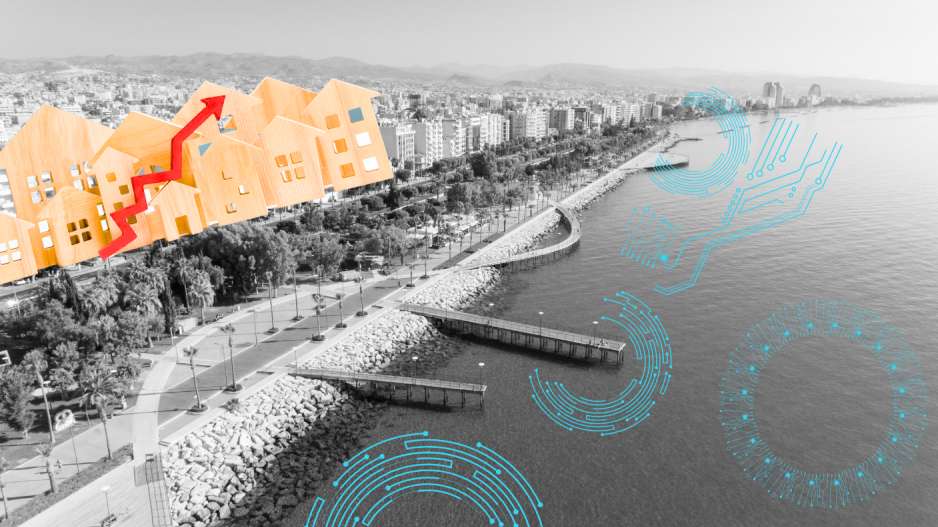Tech Clusters’ Impact on Cyprus' Real Estate Economy
The famous saying, “birds of a feather flock together,” gives premise to the tech cluster phenomenon. Tech clusters, also known as technology clusters, innovation clusters, or tech hubs, refer to geographic regions where a high concentration of technology companies, startups, and supporting institutions are located. These clusters are often characterized by their dynamic and innovative ecosystems, where knowledge-sharing, collaboration, and entrepreneurial activity thrive. They essentially form a nest, attracting others to nestle in and contribute to technological development.
Tech clusters are located in various regions around the world, from Silicon Valley in California, to the Cambridge Cluster in the UK, and the Bangalore Tech Hub in India. They play a significant role in driving economic growth and competitiveness by attracting talent, investment, and fostering innovation. Similarly, we are seeing a tech cluster forming in Cyprus, as a result of leading technology companies relocating from Russia, Israel, and China, to name a few. In this era of rapid technological advancements, tech clusters have become essential drivers of the global digital economy.
Forming a tech cluster requires a monumental effort from entrepreneurs and the private and public sectors combined. We have seen such efforts in Cyprus, from entities such as TechIsland, the government passing tax bills that enable foreign talent and businesses to operate across the island. These efforts ultimately provide great results for the economy. In 2020 alone, the ICT market in Cyprus reached a total value of over €690 million, and has contributed an estimated €3 billion to Cyprus’ GDP in 2022.
Despite these cumulatively positive results, there is a downside to tech clusters that is being observed by regulators and states alike. As leading technology companies relocate and form tech hubs, they require accommodation for employees and office space; and as they leave their previous locations, they present a challenging hurdle that is a void in the real estate market.
Cyprus’ ICT sector gains can be attributed to an increase of foreign companies nestling into the island, as well as relocating highly trained talent. As documented by former Minister of Interior, Nikos Nouris, in his speech at the VIII Business Conference in Limassol in 2022, there were 5,475 applications for new businesses made in 2021, and 7,883 applications made in 2022. The growing presence of foreign businesses drove the relocation of talent from abroad to Cyprus.
Although it is unclear how many were accepted in sum, the sheer number of applications signifies the influx of new businesses, employees, and entrepreneurs making their way to Cyprus. Various factors influenced these findings, including the war on Ukraine, the lasting effects of the Covid-19 pandemic, the retired golden visa program, and, as previously mentioned, the government’s efforts in making Cyprus more enticing beyond its beautiful beaches and hospitable environment.
The increase of foreign businesses and individuals arriving in Cyprus has impacted and reshaped the real estate market, influencing property valuations, and renting and purchasing prices. To put the extent of foreign influence in Cyprus’ real estate sales into perspective, according to the Department of Land and Surveys, domestic sales in real estate increased by 16% in 2022, compared to figures seen in 2021. Within the same period, real estate sales to foreigners rose up to 50%.
The Central Bank of Cyprus recorded a sharp decline in housing sales and rentals in 2020 due to the pandemic. However, as seen across districts in the first quarter of 2022, prices for homes and apartments have been rising dramatically. In Limassol, which is home to Cyprus’ technology hub, prices for apartments have increased by 6.9%, and homes by 2.1%, compared to figures in 2021. PwC Cyprus noted this to be a 6% YoY increase in 2022 in comparison to 2021, and a record-high of transactions performed accumulating to €5.2 billion in 2022.
The rapid evolution of Cyprus’ ICT sector, attracting foreign businesses and entrepreneurs to form a tech hub, has had clear repercussions on the growth of the economy, as well as in the real estate market. Pavlos Loizou of Ask WiRE, a property index, noted that “about 6,000 Russians and Belarusians have arrived in Cyprus, alongside a large number of Ukrainian refugees.” He continued, highlighting that “the latest influx has driven up rents and reduced the supply of homes in Limassol… in the last three months of 2022, apartment rents in the city were 23 percent higher than in the same period in 2021.”
Looking outside of Cyprus, more advanced tech clusters around the world have displayed more severe outcomes and consequences incurred by the commanding presence of tech clusters.
A paper published in 2009 by Erik Stam and Elizabeth Garnsey of Copenhagen Business School analyzed the Cambridge Cluster, theorizing the impact of tech clusters within the communities they inhabited. Among those theories is one named ‘carrying capacity’, which refers to “the common sense notion that a limit on resources implies a limit on the number of ‘consumers’ in a bounded area.” More specifically, in this article, referring to the resource of real estate to accommodate the supply of labor.
The Greater Cambridge Employment Land Survey indicated that there were significant losses in square meter usage of office spaces in 2009. As a consequence of the recession in 2008, roughly 8% of Cambridge technologies had left the cluster due to not being able to keep up with expenses and suffering capital losses across the board, an impact felt mostly by smaller businesses. It can be inferred that as more companies were leaving the Cambridge Cluster, more properties became vacant.
More recently, tech clusters leaving their local spaces left a larger impact across the ocean. San Francisco has felt the severe impact of large tech companies withdrawing from its sparkling skyline inhabited buildings, leaving “25 million square feet of commercial space available for lease or sublease in the city”, as documented by the San Francisco Standard. The Institute on Taxation and Economic Policy in the US published a report in late 2022, indicating a decline of 43% in commercial property values.
The city’s real estate market relied heavily on its tech cluster. The businesses that made up the city’s tech hub claimed the majority of office space, as well as housing for its employees. However, after the pandemic revealed the value of teleworking, many of these businesses withdrew from office spaces, leaving a vacant void. This event led to property owners asking for reductions on their tax bills given that the value of their properties declined immensely.
Sf.citi, a digital hub for San Francisco’s tech policy updates and technology related events, noted that 63% of tech companies have downsized their offices in the city. They also experienced a 35% decline in their inflow and outflow of tech workers in 2021, recorded as “the steepest decline nationwide”. That 35% represents more than 72,000 people, a number that would stagger any district in Cyprus.
The main contributing factors to San Francisco’s tech cluster exodus consist of the city hosting the second most expensive office space market in the US, as well as gradual business tax increases over the course of a decade.

The decisions made by public and private sector entities when scrambling to resolve issues caused by recessions heavily impact the sustainability of tech clusters. As technology hubs inhabit a space, the availability of real estate as a resource is crucial. Cyprus seems to be recovering from its recession in 2013, and shows a rapidly recovering GDP. These factors reinforce the growing ICT sector and tech cluster formation. However, as real estate prices rise, it may warrant concern for a potential vacant void as seen in San Francisco.
Keeping people informed and adjusting to societal changes are among business' capacity to help prevent such disasters. By providing training to team members, actionable insights to clients and customers, and understanding people's evolving needs, organizations play a critical role in balancing the impact of a tech cluster on a real estate economy. Nikolas Michalias, founder and CEO of M.Residence, shared with us that:
“Real estate today has to do with ownership. We are now in a time where getting a mortgage for a home is no longer viable. Property ownership is a luxury, as there are cultural and economic shifts taking place. Rather than owning an entire home, it is more likely that someone will own a part of that home, called fractional ownership. People want to feel more mobile and flexible rather than being tied down to one property, and there's nothing wrong with that. It is simply a matter of today's culture and shifts in people's priorities."
He added that the modernization of houses and rental properties requires due-diligence and a thorough understanding of the industry's digital transformation. "Regarding real estate's digital transformation, it requires vision, purposeful work, and a dedicated and constructive culture. It is a matter of taking risks, and investing time and money. There aren't instant wins, but hard-earned long-term wins. Most importantly, it demands that real estate agencies educate not only their teams, but also their clients to better navigate the digital transformation of properties and the industry as a whole.”
The World Economic Forum interviewed Jonathan T.M. Reckford, CEO of Habitat for Humanity International, a global nonprofit housing organization, where he discussed his vision of reinforcing housing markets in times of uncertainty. Reckford believes that a close partnership between cities and property developers will create efficiencies in use of land, financial resource allocation, and costs, “it’s all about coming up with something that can work both financially and socially and do it in ways that meaningfully increase supply. The problem is, too many of these things create small numbers of units when we need large numbers of units now.”
As companies and professionals migrate to different locations for various purposes, cities globally must be proactive, rather than reactive, in their preparations for increasing housing supply while maintaining affordable housing markets. The world is moving towards a more sustainable trajectory which the housing market must assimilate to beyond technologically enhancing properties to be sustainable housing units.






